- Amy Jo Trier-Walker
- Kristin Maffei
- Mark Ducharme
- Alison Strub
- Irving Weiss
- Nicholas Grider
- Robyn Art
- Cindy Savett
- John Lowther
- John M. Bennett
- Mark Dow
- Erin Wilson
- Chelsea Velaga
- Aditya Bahl
- Stephen Emmerson
- Sally Deskins and Laura Madeline Wiseman
- Mark Young
- Jim Leftwich
- Tom Hibbard on Marton Koppany
- Contributors' Notes
- Index of Past Contributors
- Archive of Past Issues
- Masthead
- Links
Amy Jo Trier-Walker
Planting Fireflies
Bleak-mountains, my beautiful is crooked:
I hear the sounds one cannot live through,
so I didn't give her dry socks
even though she had black hair.
narrow bows sitting on the window.
They were wood in all those paces,
as curled as myself,
as grained as born,
as ground as once.
Me not saying anything in the dream
or anything else for that matter.
She saw thorns gathering under the skin.
We were planting fireflies, unloved.
Amy Jo Trier-Walker
Tending the Echoes of Dust
Amy Jo Trier-Walker
Wind must be sewn
into every direction.
To read by axes,
a shadow of brittle.
A palm not set,
a line of birds unplanted
and looked it.
Amy Jo Trier-Walker
Seeds of Sugar that Tremble
Amy Jo Trier-Walker
Notes:
"Seeds of Sugar That Tremble" is a cento of Valerie Mejer's Rain of the Future (Action Books 2012), which was edited by C.D. Wright and translated by A.S. Zelman-Doring, Forrest Gander, and C.D. Wright.
"Tending the Echoes of Dust" is a cento from R. Erica Doyle's Proxy (Belladonna* 2013).
"Wind Must be Sewn" is a cento from Cole Swensen's Goest (Alice James Books 2004).
Kristin Maffei
Sea Song
Rusted over little fish house
RMS Lusitania
I love you.
Brown water oil slick, I love you.
The underwater lake forms in endless night
where some creatures will never
touch a solid thing their whole lives.
I love you like no solid thing.
There is one lanternfish for every cubic meter of ocean.
I love you like mermaids love lanternfish, streetlights of the sea.
I love you like the flooded house,
all the heirlooms on the second floor
three feet of water on the first.
Kristin Maffei
On the Shore Where the Sand Darkens by the Breaking Sea
Once, you picnicked here, bit
into ham sandwiches with the crunch
of sand, cheeks seared red
by salt wind. Once, seasick
on the ferry, you shuddered.
Tie your apron, the linen one,
and fix the meal, first or last.
Make cream with pepper.
Stack bricks around twigs,
set ablaze, feel hunger, begin again.
You have come to sleep
but there will be no rest here.
On the cold beach
at the edge of a forest,
first you build the empire.
Kristin Maffei
Lazarus
You lie in the gallery of the healer.
He grinds cinnamon, twists the pestle
and sprinkles the dust into each of your eyes,
across your chest. There is a pouring of oils,
a laying on of hands. He takes it out of you.
The tips of his fingers ring the rim of your nostrils,
tap and patter along your throat, knead your stomach.
He pulls off the bandages and breathes
over the wounds, which heal in gold.
You remember dancing with your sister, a wedding somewhere,
and her neck encased in beads, everything filled with wine.
There's more. The dreading
slipping away. A light. Darkness.
He presses harder now, and the table is dripping.
His fingers on your temples, a dull ache in your skull.
Your eyes sting from the spice and a new light.
In this place, there is no thought. There is no I.
In this place, behind a stone, cold, there is only
your flesh, and his hands, kneading and pressing.
He breaks your legs and says, walk. You do.
Mark Ducharme
from Defacement
Defacement 9
To be on a continent of shadows
Moving through the rain
To the ends of an idea crashing
On the surface of the night
Night's surface devours pigments
Does not reflect the color white
To touch night is to question the existence of weather
The color of the wind in summer
To move into night's pores
Is to forget language
To swallow the idea of yourself
Moving through time through the course of the sea
Through colors' violent swaying
Against which nothing's formed
Mark Ducharme
from Defacement
Defacement 10
The evening face of the sky's welled up
Seizing us by thought
By reach of non-appointments
Against which nothing's forged
Evening surmounting seizure
Beneath the swollen rain
In birth to be stunned stained
By mirth
The sky is disappointment
Blooming in reverse
Where we sing, & everything
Else, which has been lost
Mark Ducharme
from Defacement
Defacement, a Prime Number
To still be levitated, or to blink
Scorched by summer's tuning
As if anything were proper
On your face, an inky sky pulverized
By feeling's demons,
Torched anatomies
Which midnight does not choose
Until some of this is true, this stalemate
Blooming into darkest night
Swift, like summer apples
Where we sing, & everything
Else, which has been violently omitted
Mark Ducharme
from Defacement
Arrive
Just because the air is filled with light
Just because silence is filled with ourselves
Enveloped by [enclosing] when we go
Like everything in colors rushing outward
Until we are anything again, brokenly
With ourselves almost full--
When does it stop? Why
Do we, in fevers, wake?--
≠
Scratch out the words which
Scratch. Usher them
To a fire smoke eyes burning terribly
Over here. It is all
Over or under
Here it issues from itself when itself
Issues frantically
The boat has left
The boat has left
Arrive at a place where you issue
Through scenes
We are all not any of them--
& This never was
Mark Ducharme
from Defacement
Here
"farewell notes from those gone
weave through the composition"
[...]
"may you be forever strange"
--Anselm Hollo
aMUSEment never in the sense of
Staying still or grounded in the day's recitals
When we say we'll go back
We'll go back
Windward into weather
That surrounds us drowns us
Say the word
& Word is free--
"I am the Sea," & you
Who are no longer here
Alison Strub
Discussion Of End-Stage Liver Disease Calculator
What I want to know is how to calculate risk, so I can control the future.
I have wondered about jumping from the sky: what if I fall before I am ready, descending in circles curled, my hands ungrasping as they become colder.
I wake from this and I am within a spotlight of a lamp, the knob worn down to the grooves by me: turning on, turning off.
The deer even crosses the street when it knows it has to, its lampblack eyes and velvet nose staring when the beams illuminate his eyes. His horns just pierce his fur, white and short. I know, for this he has risked his life.
Alison Strub
Discussion of Wildcrafting
It was raining. I removed my frock and the water hit my skin. I dug up the hair-cap moss with my trowel.
Naked, there was no reason for being. Naked, the body would not obey even as clothed.
The world is full of all good things: the saltbrushes -- spinach, swiss chard, sugar beet.
I run my hand over the thistle's purple flowers. My hands are not pricked. There is no pain.
Alison Strub
Discussion of Scottish Plague, 1644
I am outside again in the open air, and you out there living your life like any other person, and it is still inside as you lift the apricot from the plastic bag, selecting one that it is tender and soft.
Despite the myth, victims were not walled up in the closets and left to starve. There was organized quarantine. Those infected enclosed themselves in their houses and displayed a white flag from the window. Bread, ale, coal, and wine were delivered to them. A doctor would visit. The doctor, in reality, could do little to help.
I also select an apricot, leathery and sweet. Everyone is alive, and out there, living.
Alison Strub
Discussion of Decoctions
The snow falls and I gather herbs before the ground is covered.
I can only moderate risk. So often I imagine the consequences of stopping or going. I see the black hellebore and what could it be besides a cure for the mind or a cure for the desire to go deeper into the forest.
There must be one green leaf left.
Alison Strub
Discussion of Bonesetting
I dilate your pupils with nightshade and digitalis, and there was beauty in your lashes.
I can only believe in the curative powers of what I'm given, what I'm told is medicinal: the extract of foxglove; the therapy of coffee and tea; the ether in the water.
The limbs are broken.
Is there anything more to do other than set the bones and pray.
Irving Weiss
from Bent Nails
the nails that resist and do not concede to the hammer
bend
often even after they are straightened
placed
and struck again
they deliver a slight wobble
are rejected
scattered on the ground one by one
like crippled oriental beggars
their stories are brief
they say
Irving Weiss
from Bent Nails
25. mother hearing a sound said come in
and undid the latch
scaring the burglar out of his wits
now that he'd have to become a robber
Irving Weiss
from Bent Nails
39. the convex wife
the concave husband
this is it this is it this is it
as long as were together
Irving Weiss
from Bent Nails
45. the tortoiseshell button fallen between the cracks
of the floorboards in 1923
gleams briefly in reflected light
returns to being forgotten
Irving Weiss
from Bent Nails
49. the things of this world
are on the increase
we will surely go under
unless they are paid for
Irving Weiss
from Bent Nails
54.this is the only version there is
it says all it can say
andcant be revised
repudiate it by enduring
Irving Weiss
from Bent Nails
55. to trust your love
is to go around naked
without fear
of arrest
Irving Weiss
from Bent Nails
56. darling wasnt that smirk of yours
the paperclip
i thought i saw
gleaming under the catdish
Irving Weiss
from Bent Nails
60. when everything makes a difference
nothing makes any difference
if you know what i mean
you dont
Irving Weiss
from Bent Nails
62. whether your mouth chews
open or closed
achilles and the tortoise
run between the bites
Irving Weiss
from Bent Nails
83. the trouble with pain is
you have to enjoy it now
the trouble with death is
you can only enjoy it once
Nicholas Grider
From the Book of Former Wisdom
///
Then there's dialed-up spotlight, and kid, the malachim say, getting high-pitched and glassy-eyed is not a salve, and God is neither anthropomorphic nor Anthropocene, is not densest point, is both spotlight and spotlight's target, if showcase is directional
or an onslaught of circus
God is not an unfathomable motor
[ ]
there's some kind of ornate rumor, and it's sliding your way
Nicholas Grider
From the Book of Former Wisdom
///
It's not entirely simple and is unrelated to miscellaneous variations on sublimity, the pound cake is not baked, there's no "falling over" entry in the instruction manuals, nor human analogs for helicopters
there's no instruction manuals, but there are passwords and flare guns, the flare guns are not a probably or a likely
[ ]
there are thousands of permutations of "lantern," and you're not one of them
there's a knee-bend and tilt but modern prostration is not really a thing, kid, so sit your ass down and straighten your tie
[ ]
untold marvelous entrances, behind this is
Nicholas Grider
From the Book of Former Wisdom
///
Neither catastrophe or admonition, or maybe admonition aimed at you but shelve it, supernal glory is a private deal, no price tag, no aliyah, don't tell anyone but employing some imagination works just fine, kid--them ancient and you Moshe, soberly ganked
itching to discern an intention behind "audience" (or are none but that lightbulb precedes getting grabbed and shaken hard)
eventually there's no "find something to hold onto" or the grasp is smear or smudge
[ ]
the instruction manual was printed backwards, and there isn't one
the scratch of it is the black of faith and of submergence
and the water's not actual, and faith and submergence are the same damn thing
Nicholas Grider
From the Book of Former Wisdom
///
That's not entirely your tongue nor what you do with it, don't bring it up in public, the world is dripping wet with apple carts and you're no coloratura
God is neither coloratura nor stolen shopping cart
you're pure innocuous plebe but you're not sub-basement, this is not that, no adult child, no waiting until you're forty, neither ascent nor descent, this is not that and you no easy bucket, Moshe, no village idiot humming the melody to "You Can't Always Get What You Want"
[ ]
the universe still consisting almost entirely of corners and whim
Nicholas Grider
From the Book of Former Wisdom
///
There might also be serpents somewhere in the interim or antechamber (size of a small forest, plastic-wrapped ecology, semblance of a hereafter) but the serpents are unnamed, as are the flora and the eerie silver pillars
maybe you should just try shoving harder
the angels of shoving arrive and roll their eyes
[ ]
there are no angels of shoving, no dedicated malachim, what you get is what you get, more like a home you didn't know you owned than a tailored suit, but Moshe remember you're not making any claims, this is not that, this has something to do with aptitude
mountains are still mountains, aptitude is related to both remonstrance and inheritance
Robyn Art
Synesthesia
Like us, in autumn, the leaves attempting
to catapult from their moorings but end up
just sort of swirling around the perimeter
September with its nostalgia flash-flood
I fall on the thorns of life,
I bleed (Poet, Visionary, Class-A Whiner)
Among the Staff Development team-building games
the "draw a picture of yourself as a fruit"
(an earnest person,an "Animal Lover!" etc.)
Some people actually smell in color (in the event
of a bad cold, is Donny's jacket red or blue?)
on the test, the child recalls what she's learned
about plants, They are in one
big life cycle that goes on over and over again
Robyn Art
Sword Swallowers of the Nineties
Finally stopped trying to grow things from seed.
Relinquished the view from the nosebleed seats.
Cute penguins, once all the rage, receded from view
like soap-on-a-rope or "I'm in a weird headspace right now."
Like Thoreau, to drive life into a corner.
Like Dickinson, life being over there, behind the shelf.
On the return trip through semi-agrarian landscape,
longed to be as clouds, massy and relevant.
Stymied by traffic patterns, lingered on the off-ramp
under the billboard of the non-specifically Latina in scrubs
extolling the perks of Medical Assisting.
Tried a fair number of the many-things-illegal-in-New Jersey.
All the while, its pink-cheeked Governor through the gasp
of static on the ADD-addled airwaves, We will not
retreat from the waterfront,
we will not retreat from the waterfront,
we will not retreat from the waterfront
Robyn Art
Dear Avatar,
in the time it takes for someone to appear from behind the parked van with the release form, I could be kicking it poolside, the wind on the lake attitudinal and bitey this side of the urban arterials, ten-dollar cupcakes and high-end muffinry. I can't zip up my jeans for shit but still, the woods implode in actual autumnal splendor like the guy said on the radio: Anything can happen in Jersey, Jersey microcosmically American even down to the inclusion of floodplains. Dear Corporate Underwriter, is there really life between the dishes? Dear Republican Majority, will you always traffic in discomfiture? I school I hung out with the arty kids but not so much the girls with fabulous updo's. Sometimes were were all just, like, Dag, except for that time we witnessed a sort of meltdown/freakout at the waffle bar and looked at each other over the toppings station, like, Should we maybe call someone? Dear Thrill-Seeking Multitudes, I want to say, we are but brief candles, hunker Thouest down with a stash of audiobooks and Vicodin, cruise the interweb, walk the earth, get into adventures. Freezer burn, paperwork, the full-bodied, womanly hours. Dear Recession-Induced Homesteader, I remain, Dear Reader, Yours, &c. &c., a start, a beginning of things, a gazillion words for Whatever.
Robyn Art
Lake Effect Radio Sonnet
Monday: From the mostly particle board starter home on the bus lines, no whispery elms, no mount from which to gaze on foggy morns, the deer in the cul-de-sac ravine picking daintily through the yard clippings and beer cans
Tuesday: Polar vortex, freezer burn, Ask Me About My Attitude Problem!
Wednesday: Dear Firstborn, writes Odysseus from the front, You wouldn't believe what passes
for labnah around here
Thursday: Like the humanoid mumblings of crows, rousing multitudes, or maybe just startling the guy with the leaf-blower, sometimes the most direct path between two points is through the Drive-Through window at Hardee's
Friday: Sinus pressure and dark money, the needle of January's bared and silvery maw, flatlining on dailiness and dishes, maybe love is the problem, the spreading light abscessed around the hill
Saturday: Through the audio static/infernal click-clack of the polygraph/wind ruckussing in the
eaves, the three-year-old singing about trashing the hotel room/getting drunk on the minibar,
through second-guessing the dosing cup, feigning interest in the Paleo diet and scrapbooking, the
weekday with its weekday-ness all up in your grill
Sunday: Dopey and moonfaced, the morning blinks on with shrapnel in its gums
Robyn Art
Dear Happiness,
a.k.a., Low-Level Contentment,
the way the neighbors each spring plant rows of prissy gladioli
in their scrappy row house yard, not minding
the crummy exterior;
a.k.a., Sustainable Okay-With-It-Ness,
ectomorphic saplings spanning the median strip;
a.k.a., Buzzkill,
did you know a cockroach can live up to a year without a head?
a.k.a., Haters, are you still
using journal as a verb?
a.k.a., I, too was once a diffident punk thrashed by unnameable longings;
a.k.a., Never Enough, as in, living room perennially trashed, no time
for eco-conscious holiday crafts with the offspring;
a.k.a., cortisol levels inching inexorably skyward;
a.k.a., composed primarily of hijinxs, doomed to a lifetime striping parking lots
of the Big Box Emporiums spackling the freeway;
a.k.a., The Interweb, squishy Life Partner types trolling the backchannels of the Intimacy
Seminar;
a.k.a., the small gradients of: the home cheese-making enterprise; sexually-objectifying
a loved one; light percolating in the snagged trailer door;
a.k.a, in the way pigeons secret milk from glands in their throats to feed their young we schlep the kiddies to the giant McDonald's play land off 9;
a.k.a., sipping weak coffee with the other fractious parents as the wind howls over the traffic, sibilant and throaty;
a.k.a., high on Sudafed and Pepsi, the sun nefarious and barbed, just sort of milling around the multi-use facility, wet leaves battering the pagoda;
a.k.a., in the caffeinated pre-dawn of the viewfinder and the unbroken line of triplexes spanning the perimeter; in the weirdly-protean mind-meld of any thumbed species sauntering cluelessly over the land bridge; in the half-lobotomized backwaters far from the city center;
a.k.a., until such time as your Qualifying Life Event, all is palimpsested, tick-tick, aquiescence, glean
Cindy Savett
the reminder
I am the lightened room
falling ill
a handshake with the wind
I am the rooftop
swaying
palm to palm
I creep around at the edge of thought
aiding those who leave life at the door
in my hands are oceans and agitated seas and a mountain
I have only the frequency of tongues the abundance of glass
remind me
I whisper
Cindy Savett
mostly the fervent ones
depending on the season I will weep for you
caution
my wrinkled hand and red ribbon
I am the reasonable one I cry
creasing the rising sun
I dip leaves in gold daylight
and rest my bare feet in the well
across my shoulder falls the thumbprint of forbidden prayer
the glinting off
my blade
for I am the infant
bending the bough
converting you to echo
Cindy Savett
the rising
shoes filled with praise
filled with pine needles
line my floor
a momentary faith swirls through my brick home
holes in the roof
masks covering the wall
a passerby of frail frame
begs for closure
feed the toothless I say aloud
stumbling to my feet
a stained cup between my palms
John Lowther
from 555
Note on the Text:
555 is a collection of sonnets whose construction is database-driven and relies on text analytic software. I crunched and analyzed Shakespeare's sonnets to arrive at averages for word, syllable and character (inclusive of punctuation but not spaces). These averages (101 words, 129 syllables, 437 characters) became requirements for three groups of sonnets. I collected lines from anywhere and everywhere in the air or in print in a database. The lines are all found, their arrangement is mine. Values for word, syllable and character were recorded. Typos and grammatical oddities were preserved; only initial capitals and a closing period have been added as needed. The selection of lines isn't rule-driven and inevitably reflects what I read, watch, and listen to, thus incorporating my slurs and my passions as well as what amuses and disturbs me. These sonnets were assembled using nonce patterns or number schemes; by ear, notion, or loose association; by tense, lexis, tone or alliteration. Every sonnet matches its targeted average exactly. Think of Pound's "dance of the intellect among words" then sub sentences for words--it is amongst these I move. The dance in question traces out a knot (better yet, a gnot) that holds together what might otherwise fly apart. I espouse only the sonnets, not any one line.
John Lowther
from 555
We cannot begin with complete doubt.
Let's at least start off with a few laughs.
I still say you're are getting ripped off.
We're sick to death of all this nonsense.
Man is the product of his product.
Die already, or become human.
Both of which I enjoyed immensely.
So it was easy to get into.
All we need is a toastie maker.
The most efficient way to smoke weed.
Cram them full of good crimey weirdness.
They only understand tough.
Who knows what the truth is.
All colours will agree in the dark.
Don't settle for a piece of shit.
John Lowther
from 555
In molecular biology and medicine, diversity is pathologized: difference is considered a disease.
Man, in whatever condition we find him, is more or less depraved.
For over a year I did my cross-dressing in secrecy and isolation.
One could say: it is in the nature of identity to be mistaken as identity.
I remember the first time I got arrested, I wasn't even in full drag.
I was wondering if the deputy knew I was packing and didn't say anything.
Then even though other people may see the body walking, there will be no man in it.
The hormones make it hard for me that way.
And all of her days became nights.
John Lowther
from 555
She tops Juliette, fucking her in doggie, missionary and pile driver before cumming a hot load on her face.
It was very free-form, and there was this idea that sex could move in any direction at any time.
If you don't believe it, compare the respective feelings of two animals, one of which is eating the other.
My new favourite deodorant is a brand of Febreeze I found in my convenience store called Ternura do Algodao.
I stroked the bulge in her panties with the tip of my finger.
My past experiences with the old orange frisket have generally been disastrous.
John Lowther
from 555
Personally, I would find the idea of an all-encompassing plague, produced by man, rather marvelous.
After all it really must be very nice to be a woman submitting to the act of copulation.
And the flipside of this is that exploring heterosexual men's sexual fantasies is like peeking inside the minds of potential criminals.
They automatically throw masculinity into question.
Dementia and memory loss are also a body's way to cope.
John Lowther
from 555
A girl who becomes more feminine is publicly rewarded.
There are no beautiful surfaces without a terrible depth.
I recognize a face of a perp in the pics.
I feel the less I say about this the better.
Jogging in public should be banned.
The punishment is theirs to bear.
Times are changing.
Just sweet fuck-all.
My tongue starts pacing in my mouth when I look at your legs.
You bought raw meat yesterday, so you eat raw meat today.
I know when I'm picking out an asshole.
Politics have no relation to morals.
John Lowther
from 555
This book belongs to the very few.
Poetry is an act of attention and we're in a time where having an attention deficit is the norm.
I'm not trying--consciously, anyway--to promote a set of theories or ideas.
I just wrote nonsense and used the most complicated word I could think of.
It has been years since our brief passion, but it's the wound under all my most beautiful broken works.
I've suffered for my art, now it's your turn.
I reject this certification: I am not a poet but a poem.
John M. Bennett
drink the rain
use unless the cor
e re tains ,in's hot
loop where ,was th
oughtless sky ,the sn
ake in's cave asleep
,its blood ,or water
from the green st
one gushed ,red
but cl ear ,and ne
ver touched the glass
- Isn't time is there left? -
- William S. Burroughs
John M. Bennett
taste the eaves
call the flawing
sky nap ape
window of the
swoll yr leg
heap trip kn
uckled flower
yanks the w
ind
por tune por l
eveled sink
John M. Bennett
the broke command
the air contained the
for re nom the
outer ring em
balmed with stones
yr axe broke the
shower floods
the floor below the
tower crowned with
flames the sweaty
lunch your bread
coughs up ,dry
the blood your
towel saved
John M. Bennett
the dream of a tortoise is the
dream of a river running backward
if we get
the hill o
ver la pen
umbra bursts
yr base
ment's wri
ggling cara
pace originant
ink darkened
river el
hotel del hue
so dorm ido
was the knee's
left pain the
knee's ave
nue sp read
behind tu más
cara's shell
yawning alpha
bet's sleepless
pool her thighs
her wrapper ou
verte les esca
liers her
wheel of smoke t
urns toward you
Picked from the husks of
Ivan Arguelles' "anabasis xlvi"
John M. Bennett
spinal copy
g laze the tome sangre r
inse a head of f L ago
's eyes' sunk dream sh
p age of binding age of b
laze o ver el agua es es
inching b ack bac on gri
tty toE in my grave L
Mark Dow
Four Centos While Packing Books
Cento on Style
What is surprising if style should be simultaneously a mask and an admission? Style is the perfection of a point of view. But the reader soon forgets the style as such -- a forgetting which is the greatest accomplishment of prose, revising his intentions under the pressure of a style that evolved as if in opposition to his conscious aims. After all, every man will have his own style, which will distinguish him as much as his gait. Try to get out of it. Go far enough into yourself that your style can't follow.
E.M. Cioran, The Temptation to Exist, trans., Richard Howard, 1987; Dallas Neiman-Marcus executive in Frederick Wiseman's The Store, 1983; Delmore Schwartz on Patrick O'Brian, Partisan Review, Nov/Dec 1952; Clement Greenberg on Cezanne, Partisan Review, May/June 1952; Cotton Mather, Manuduatio ad Ministerium (1726) in Hoffman's American Poetry and Poetics, 1962; Henri Michaux, Tent Posts, trans., Lynn Hoggard, 1997.
Mark Dow
Cento on The Sixties
Mark Dow
Cento on Action and Desire
Oscar threw hard, precise passes that demanded to be converted.
Yeshayahu Leibowitz, Accepting the Yoke of Heaven: Commentary on the Weekly Torah Portion, trans. Shmuel Himelstein (2006); Giant Steps: The Autobiography of Kareem Abdul-Jabbar (1983); Leonard Koppett, 24 Seconds to Shoot: An Informal History of the National Basketball Association (1968).
Mark Dow
Cento on Negroes and Jews
Erin Wilson
from Break-Night Dawn
Daylily Distance
a boy I knew drove that two-lane road
there beyond Enfield was a strip club
that stretch, at night
he closed his eyes, he said
'I want to know what it feels like
to drive with my eyes closed'
to say I knew him that implies we ever spoke
I just saw him around
same with the boy who was stabbed,
we walked, her and me, high school,
when he was killed, we walked and cried
all night, perfect blue eyes and black hair
heroin dealer angel for teenage girls,
looked straight through us
our eyes, giggling, swollen
Erin Wilson
dying he said,
'love is
16 lanes high'
I don't know
age when
address of
distance between
page
words in
the same direction
which direction
my hand across his body bed
empty body bed
Erin Wilson
it has taken so long
the trouble is
it has taken so long
if I just live in the moment
I'll lose so much thinking
Erin Wilson
16 lanes high
'to interrogate'
that particular two-lane road
I would lie down and die in that ditch
gulley between road and green field each side
so steep, daylilies, when I step, climb down
almost hidden from the road
it is moist, a stream, runoff at the bottom
there are no ditches like that here
Erin Wilson
tried succeeded tried
twelve or eleven
day not dusk
only looking
would prefer
'I remember'
or
Erin Wilson
I will remember
~ -
~ -
~ -
small orange head, slicked
back and integrating full
yellow body to underside
tail
wings
top wings brown
ordinary brown
a small step into the hallway
small shoulder
in the room step closer
do I want to touch
Erin Wilson
She has Stayed Gone
outside a sidewalk in sun, winter
she came, seated, and newspaper on a table
she was
she closed in center, hand
socks, warmed, she'd quiet. small twigs, by the sink, company and unswept kitchen
silent then ask, direct into speech when rarely
this night only specific, only health
listen to her, opened, scarf, lift arms, eyelids, length
this, rejected continuous from silent
we to they, her to us to they
this solid, this silent known
the small golden room of end, we were
single imagined known
we were made
Chelsea Velaga
Standast, Baela (Resist, Repress) I
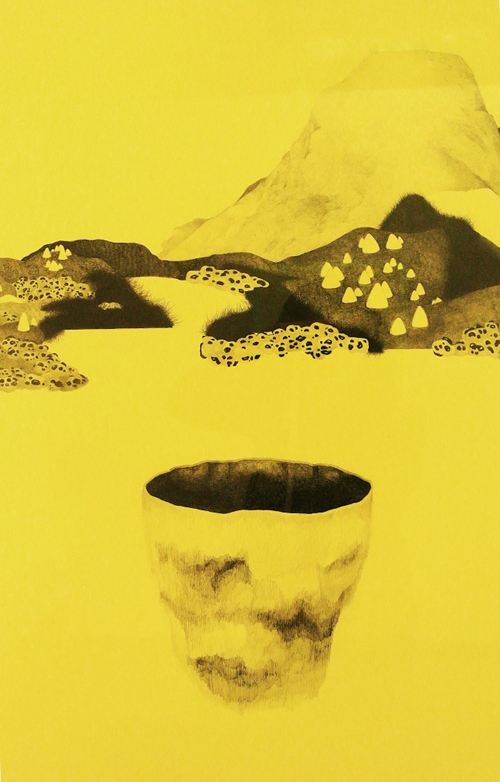
Chelsea Velaga
Standast, Baela (Resist, Repress) II
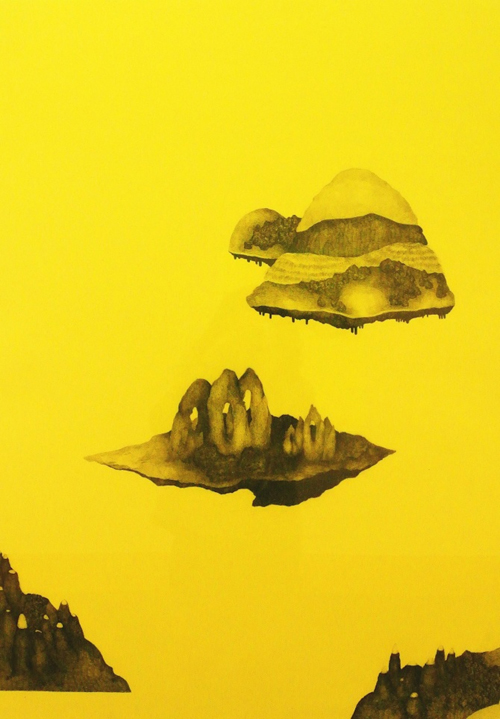
Chelsea Velaga
Standast, Baela (Resist, Repress) III
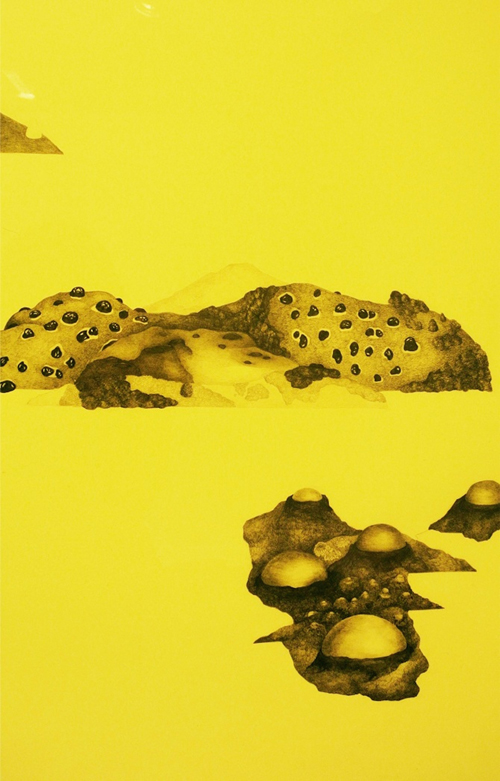
Aditya Bahl
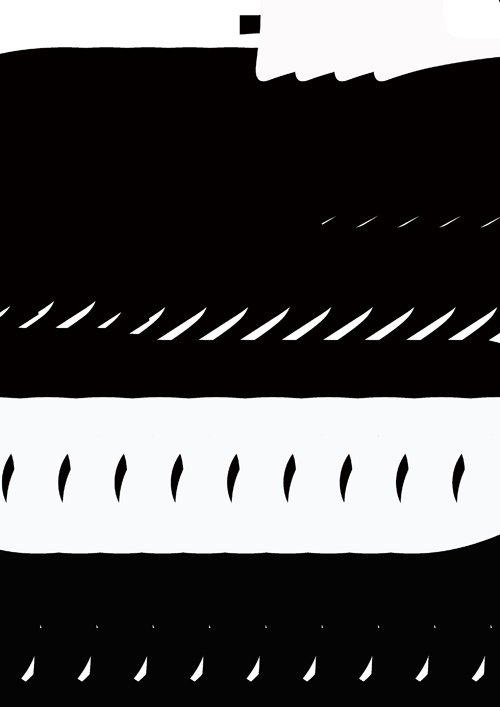
Aditya Bahl
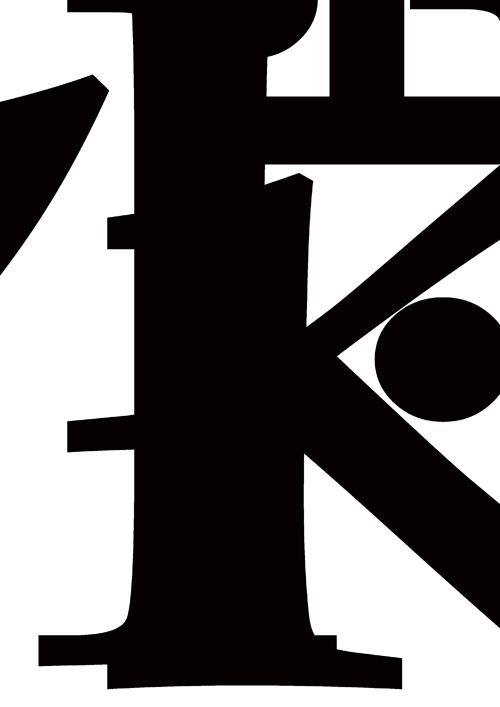
Aditya Bahl
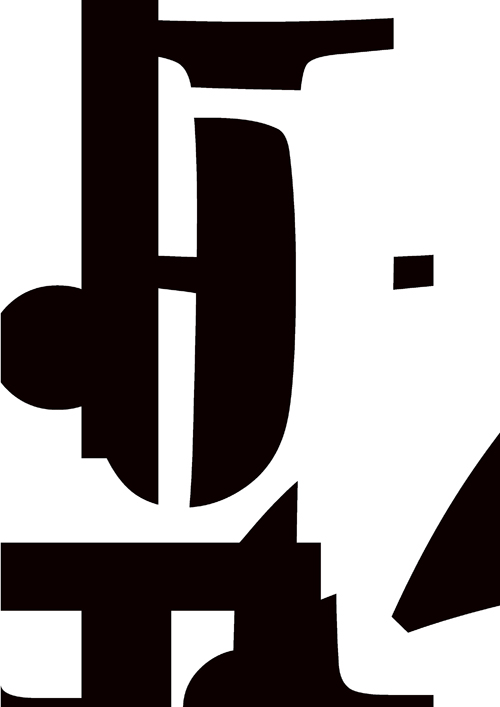
Aditya Bahl
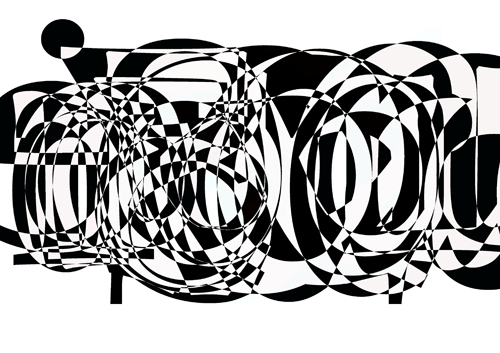
Aditya Bahl
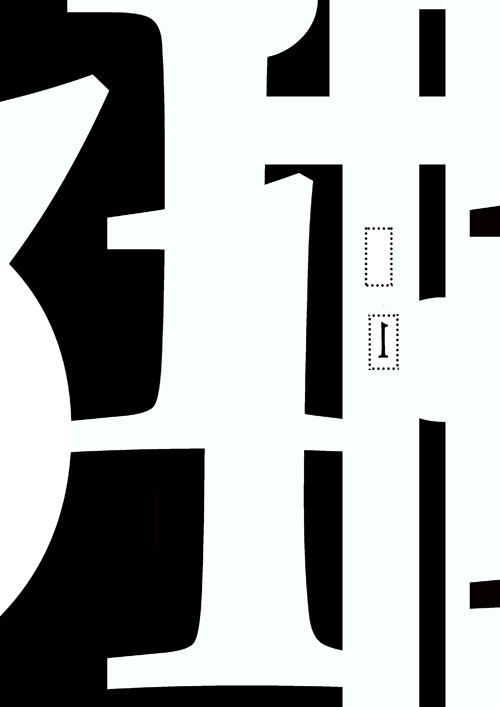
Aditya Bahl
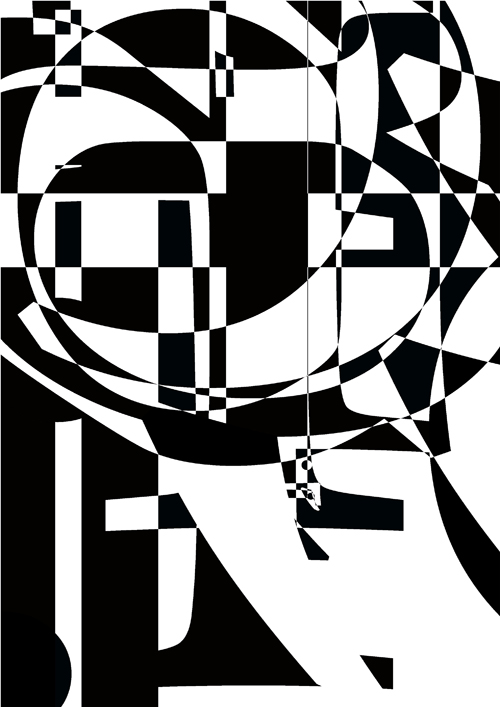
Aditya Bahl
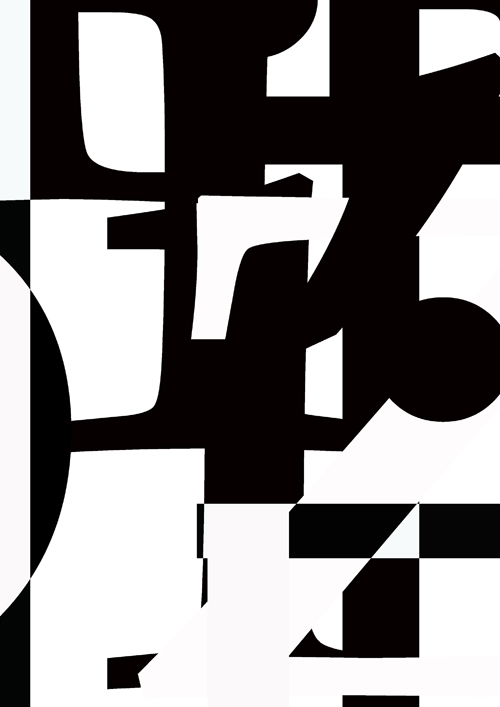
Aditya Bahl
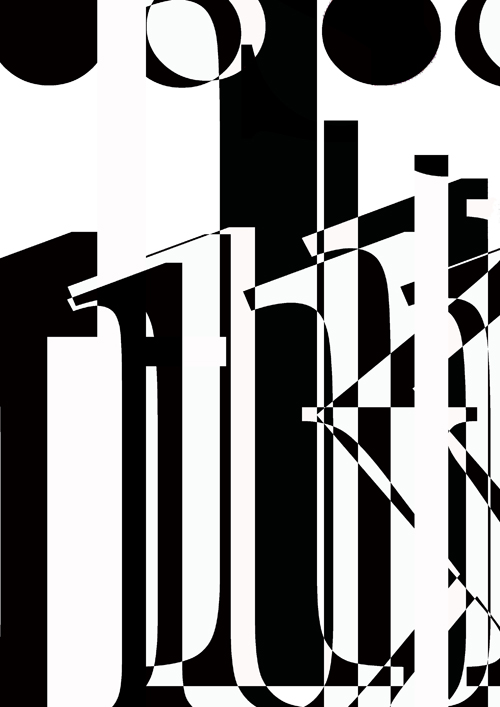
Aditya Bahl
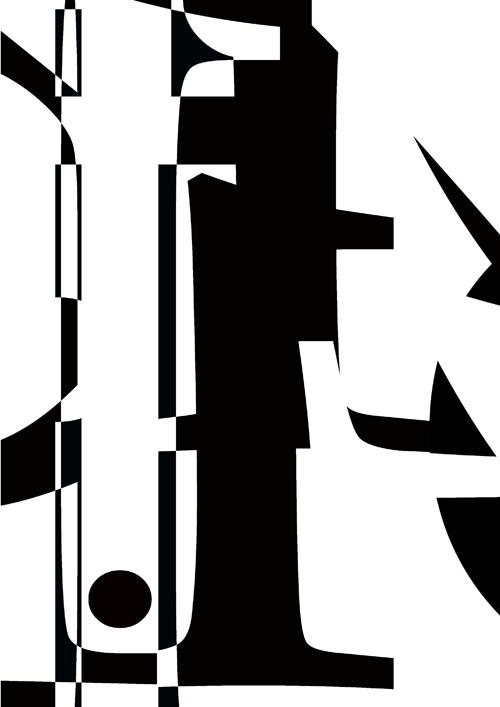
Stephen Emmerson
from The Journal of Baal
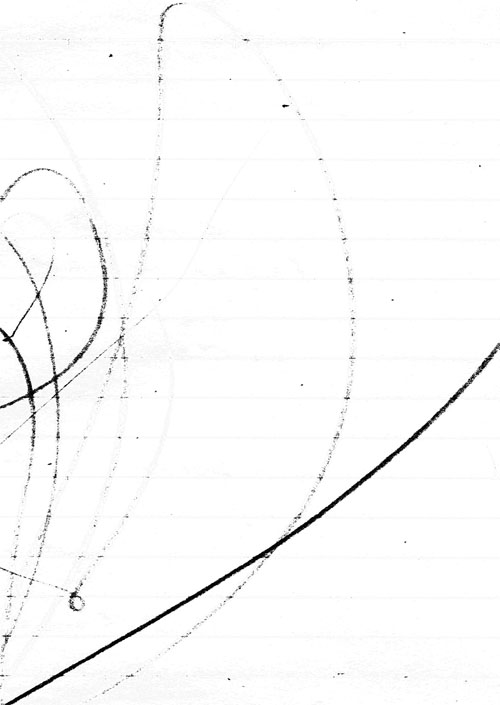
Stephen Emmerson
from The Journal of Baal
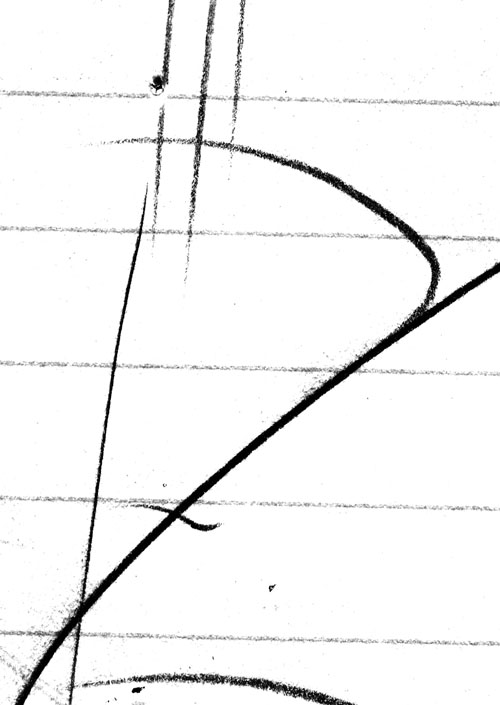
Stephen Emmerson
from The Journal of Baal
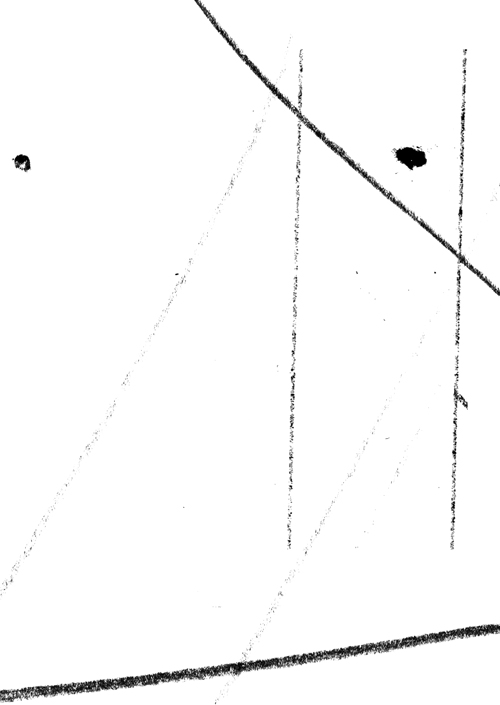
Sally Deskins and Laura Madeline Wiseman
from Leaves of Absence: An Illustrated Guide to Common Garden Affections
(Forthcoming from Red Dashboard Press)
A Wrong Tree
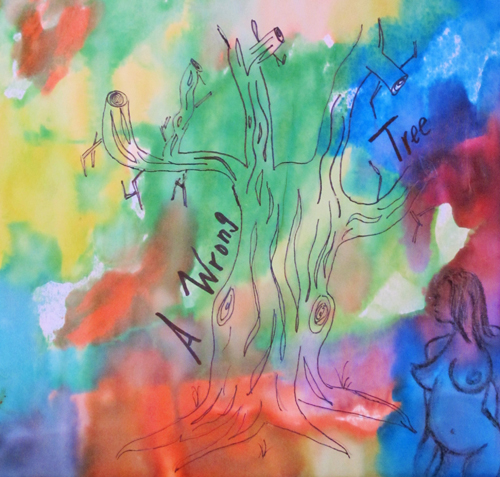
Sally Deskins and Laura Madeline Wiseman
from Leaves of Absence: An Illustrated Guide to Common Garden Affections
(Forthcoming from Red Dashboard Press)
Months After
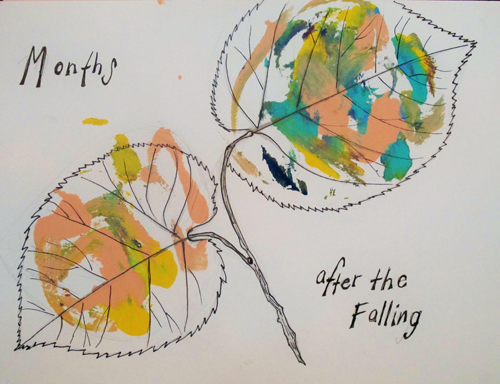
Sally Deskins
Dinasaur Dig
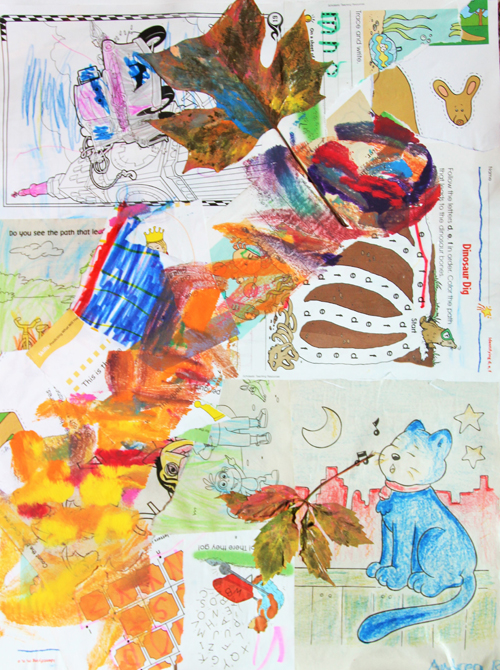
Sally Deskins
Upset with Diesel
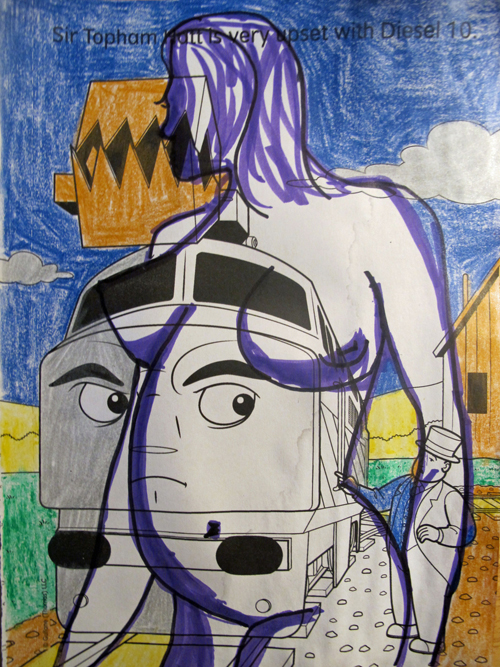
Mark Young
Cause
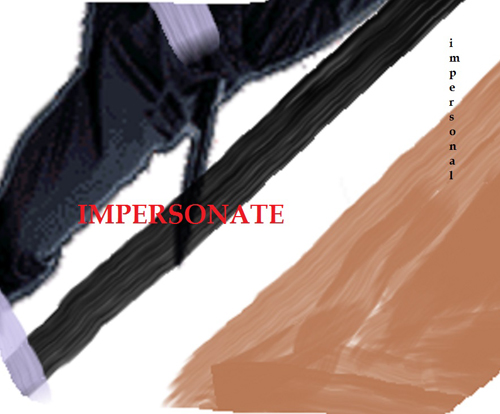
Mark Young
Forgone Episode
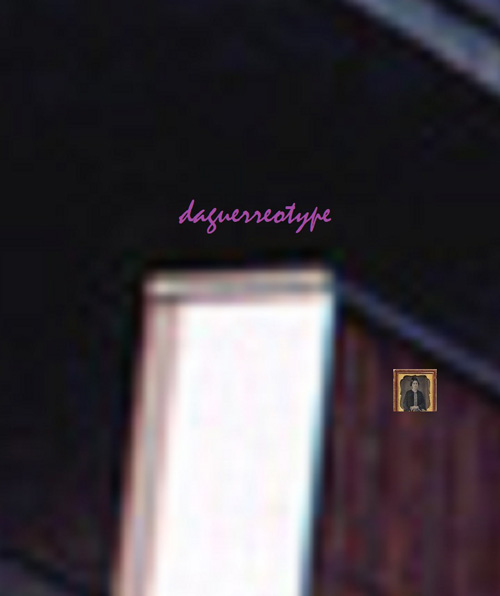
Mark Young
The Island
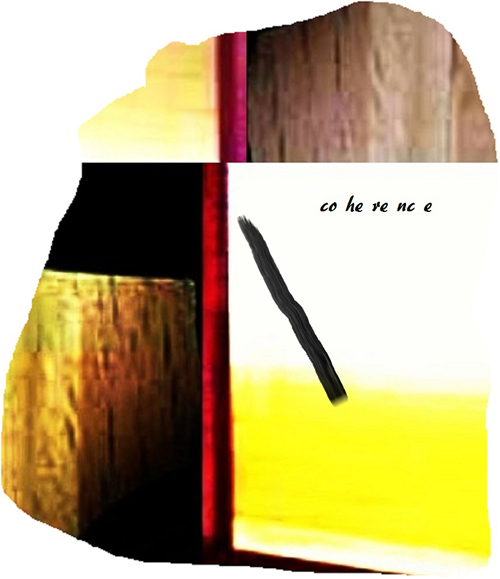
Mark Young
The Manuscript
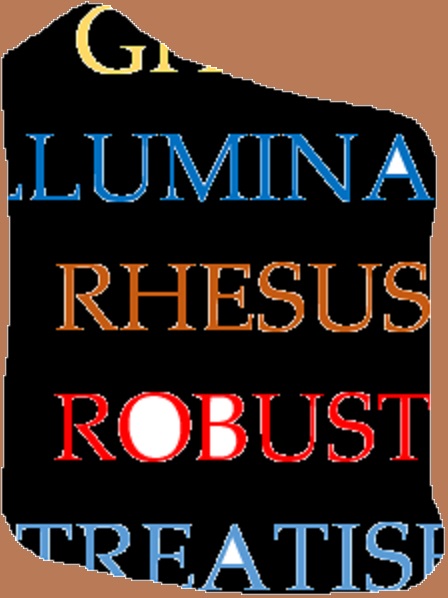
Mark Young
The River
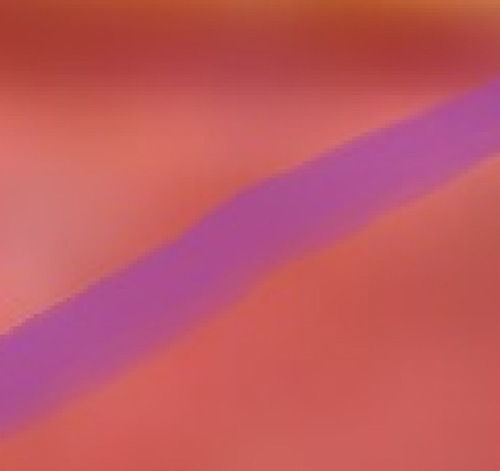
Mark Young
Wallace Creek
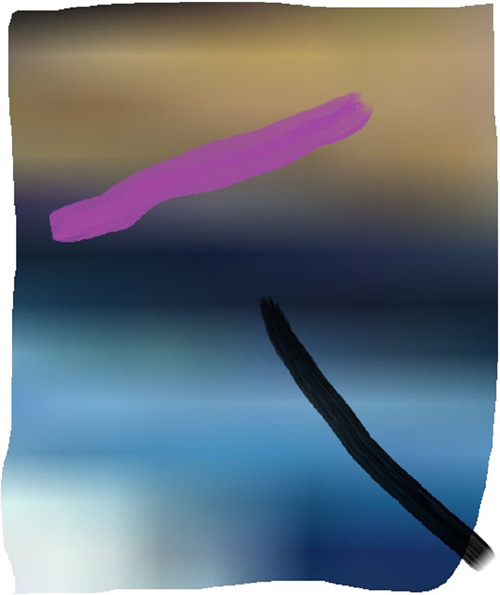
Jim Leftwich
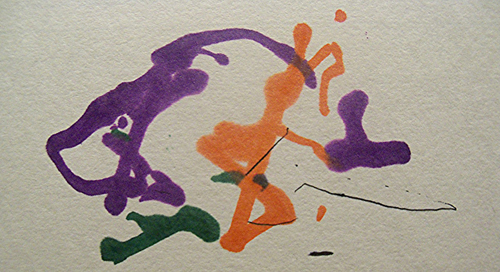
Jim Leftwich
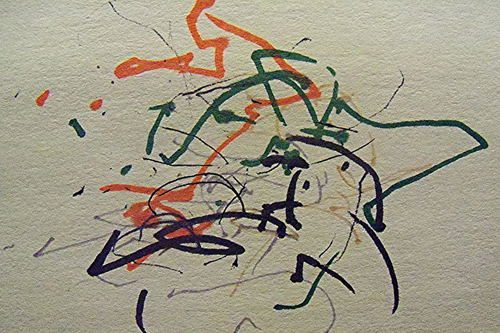
Jim Leftwich
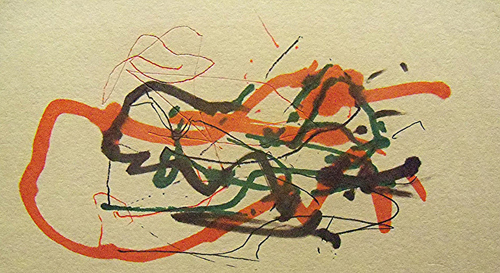
Jim Leftwich
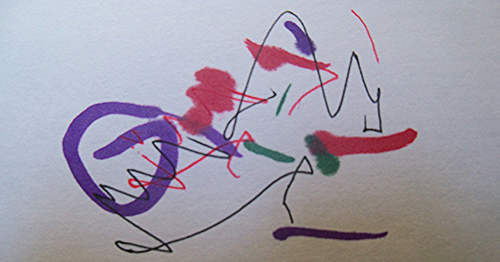
Jim Leftwich
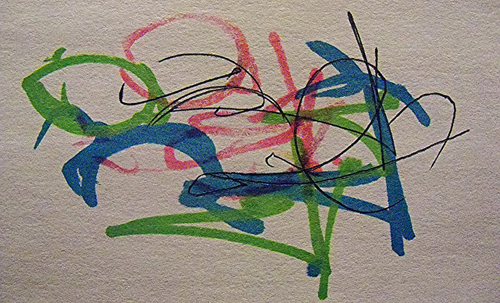
Tom Hibbard
Writing On The Wall: Koppany, Hungary and The Birth Of Form
"the position of the archetype would be
located beyond the psychic sphere"
- Carl Jung
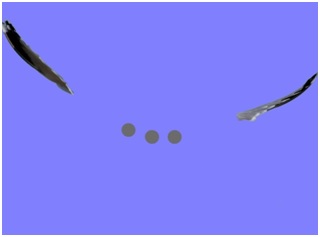
Initially, for me, the subject of visual writing, Vispo, was language itself. Visual poetry, artworks using alphabets, typographies, fonts, numerology and related symbolic materials, were an attempt to access and magically portray the deepest, most imaginative and significant graphic wonderland of the written word. Visual writing was a reaction to what seemed a superficial and narrow understanding of letters, texts, calligraphies and the haunting and solemn world that language inhabits. I was anxious to observe the representational patterns of meaning reflected in the variety and discontinuities of inexplicable primal and unique cursive marks. I looked for an expression of a fascination with the historicity of scrolls, glyphs, archives, books associated with the ages of humanity. The word "linear" applied to the medium of language seemed particularly callous and superficial. For me, the astonishing treasures of Egyptian hieroglyphics or Babylonian cuneiform tablets, along side publications such as a Faber & Faber edition of T.S. Eliot's Selected Poems 1919 or the earliest levant-covered gilt-titled Modern Library classics conveyed teachings and mysteries concerning knowledge and responsibility as convincingly and creatively as the words printed inside them. And writing, the printed page already reflected what a new group of philosophical and political linguists would describe as "the signatum," a sign or mark that
"always referred...to an entity created or at any rate first thought and spoken…in the eternal present…of presence and consciousness..."
This led to the discovery of such astonishing writers as Jacques Derrida (Writing and Difference), Roland Barthes (The Rustle of Language and The Pleasure of the Text) and many other writers and works besides--that described aspects of language in a manner completely different from McLuhanism and those entranced with mechanical technological advances. For me, language became the logos, the Greek word for speech, thought, law, and reason. An astronomic "space-ship earth" "invoked the realm of the ontological" and followed along a new conceptual path to the origins of the universe. In Derrida's words in Of Grammatology
"If the trace, arche-phenomenon of "memory," which must be thought before the opposition of nature and culture, animality and humanity, etc., belongs to the very movement of signification, then signification is a priori written, whether inscribed or not, in one form or another, in a "sensible" and "spatial" element that is called "exterior."
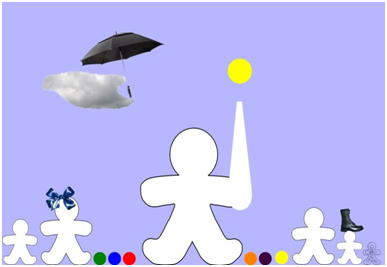
Cave drawings, carvings on rocks, subway graffiti reflected a codependence of language and humanity, especially the solitary and barely evident history of civilization. Characteristics of language, the surface of it, the development of it, had a significance that reflected the fundamental idea of social structure. Language was the irreplaceable medium of the "social contract," of a freely ordered, interacting, productive and moving society. Works by artists such as Jukka-Pekka Kervinen or Marco Giovenale showed exquisite logograms and ideograms evoking the ideas and qualities of perception, impartiality, pensiveness, fineness, Being, difference, life, law, structure, balance, courage as they are visibly associated with language. Italicized texts embodied and suggested the fluidity of thought. Lettrist and semic artworks portrayed the systemic "functioning" and totality of significance and meaning--in its diverse, sketchy, black-and-white, inviolable symmetric/asymmetric character. These were the outward features of pencil, ball point pen, paint brush, hot type, handwriting, typewriters, Depression-era printing presses--but on a cloudy atomic level of indeterminate complex configuration as opposed to unerring solidity.
Initially visual poetry was certainly nonlinear and in a new kind of way, distinct from the objective world, illuminating the conceptual, a property of the mind always as the backdrop of daily activity, referencing such problems as true justice, man's responsibility to his fellow man, love, human progress, infinity, realism, permanence.
**
Visual writing remains very much the logos, but, having seen more and more of it, I realize that the visual writing of an artist such as Hungarian Marton Koppany is somewhat different from that. The surface qualities of Koppany's work are smooth, without bump or scratch. In a sense the surface qualities of Koppany's visual work are negligible and non-existent. Certain intermediate coastlines are deleted from the field of Koppany's artworks. His smooth surfaces make his work purely conceptual and structural, not actual or psychic, removed from what might be considered secondary concerns. Koppany's visual work uses language as an archetypal, all-encompassing symbol, but Koppany's visual work isn't about language. It isn't a demonstration of difference or a representation of the logos. Koppany agrees that language and humanity are intertwined. The intersection of substance and writing is the scene of his work. But Koppany's works are in place beyond the uncertainty of matter and motion, where substantiveness and ambiguity are themselves normative. Koppany's work does not attempt to portray the anthropological connection of language and existence, going back to the arche-moment of creation and expression. Koppany's work is a schematic that, in that arche-moment, insists on the elipsis, that is, space. Koppany's work is a place of newness, immense simplification, political protest, somewhat depopulated and apart. Caring and involved, reduced to the barest minimalism of the known and the unknown, reduced to the open sign, Koppany's work seems to be about the way that language is brought into question and then reconstituted in transformation.
**
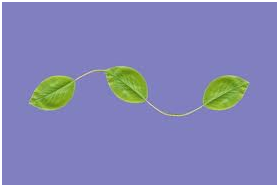
For Koppany Vispo lays aside "anthropomorphism" (Max Planck) and sentimentality for a gem-like nonlinearity. His work is beyond content. It is an allegory of form that disguises meaning, and justice is revealed as a formal category, a geometric invitation of tranquility, the ideal of peaceful interaction. In Koppany's work, the predominant image, that brings in discourse, a consideration unconsidered, and a deconstruction, is ellipsis. Ellipsis, represented as three grammatical dots or periods, is in some cases an indication of omission "of superfluous words" and in other cases a signification of a pause or a silence comparable to taking a breath in speech or, metaphorically, in thought. In the first instance, the omission might also create the sense of an omission of words or thought that is perhaps considered superfluous but whose importance is, instead, unappreciated or repressed (suppressed). In the second instance, the ellipsis is generally a structural component of a whole, a requirement, a tenet in regard to expression and rationality and also spatial. It might appear between forms, aligned with an aesthetic and moral borderline. Sometimes the dots are hand drawn, where an ellipsis is in place for better or worse, and sometimes the dots are digitally generated, indicating enduring conceptuality and structure. In Koppany's work Ellipsis No. 16, the three dots appear as three pearls of a necklace, but they are grey, colorless and exact, pearls that have yet to become real. Without a thread to connect them and isolated in an empty ambiguous landscape, their existence and identity remain uncertain but nonetheless desireable.
This idea of an ambiguous landscape, in which language is the open sign but, at the same time, a sign whose meaning is paradoxical and antagonistic toward its own manifestation is also a consistent pattern of Koppany's work. In the symbolically empty yet actually crowded worlds of Koppany's artworks, language is everywhere, as a capital letter "I," as numbers, as question marks and exclamation points, as commas, as apostrophes, as words of greeting, as rustling leaves, pairs of beings, roads, chalk marks, insects. But what is language saying, and what is language's meaning? Always the answer appears from an unknown source that problematizes the artwork's composition, that in fact creates the artwork. In Checking In, the words "here I am" appear in a handwritten font, italicized with exclamation point, contained in a comic strip-type word balloon. But there is no form or figure that utters these words. In Hello and Hello 3, the speakers are a human shape speaking to its reflection-as-absence and, then, three submerged fish for whom, it seems, thought is always parenthetical. In Koppany's work, with its general aura of silence, words, in their unexpected and various forms, emanate from ellipses. This introduces the themes of transformation and "simulation" (Levinas). Perhaps it also has to do with the fact that Koppany considers his work in some sense humorous and ironic, and he also uses the term "self-irony." It is a relieving humor. Though Koppany's work often references nature, it is affected by the dire politics of Hungary. In a work titled The Issue At Hand (dedicated to Clark Lunberry), the main image is a wall of stone. No language symbols are visible--only two "italicized" crutches and a small-sized paper boat.
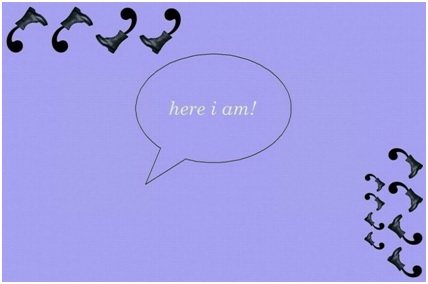
Storm clouds bring fear and mistrust. In Hungarian Vispo #2, the human cookie-cutter forms are simple in the extreme. But we do not know if they are people being praised or being protested. They wear various bows and military-style head-gear. Perhaps these features designate them as distinctive. Koppany's familiar ellipsis of three periods appears, in this case digitally printed with each period a different bright color, emphasizing the symbolic realm, a realm above. We see what seems to be a variety of human figures of different sizes with a dominant giant figure in the middle. But also we realize that they could be the same size only seen in the perspective of three-dimensions. In this way thought and understanding are introduced. Is the artwork composed of a foreground /background duality, or is it a flat surface? As they line the bottom border of the artwork, the ellipses separate the forms. It seems Koppany's intent is to say that, in the ideal, humans are separated by a space of the unknown, and this spatial relationship is a limit and a borderline. Are the human forms heroes of the edges and frontiers of meaning or villains of the undistanced crammed iconic absolute? In mid-air is a symbolic rain cloud and a symbolic umbrella; the two images wed as one--and in fact they are the primary image of dialectics. Of this image, Koppany says, "The cloud is ‘holding' an umbrella in its ‘hand,' at least that was my first association. This storm wants, perhaps, to protect us, ironically--from itself." The central human figure is carrying what looks like a baseball bat--an exclamation point (or a mathematical factorial sign), with a bright yellow period. This is its royal scepter or its destroyed umbrella, held, in the disorienting tumult, upside down.
I am guessing that these works relate to political events that took place in Hungary in 2011 (and are taking place at this writing), events that in Koppany's view brought out the virtue of the nation's people in a way that is expressed in a simple predominant capital letter "I" with crown and period but which remain ongoing. The fact that Koppany's works relate to Hungary is only given us in their title. Nothing in the artworks themselves would provide this information. The landscape of the artworks is unidentifiable at that level. This is their triumph and their permanence.
* *
The end result is a "real place," a nation, a logos, an heroic concept, Hungary. In Koppany's style of work such a place could only be depicted in a very simplified exalted manner. For Koppany there is only the end, the conceptual figure, only permanent characteristics, that is, identity. We feel a nostalgia for it and we have a feeling for it that doesn't correspond entirely with comfort; the final state is more than a primitive unconsciousness relegated to basic human tasks. The Hungarian "tribe" with its distinctive markings is a universal tribe. The final state, the artwork, leaves out what might appear in daily life as troubles, as failures--work, effort, exertion, mistake, jubilation, sorrow. The artworks search for pure clarity and form. The ellipsis is absolute.
In the U.S., the phrase "international brotherhood" immediately meets with resistance because of its ideological connotations, but in Eastern Europe the phrase might be completely uncontroversial. Conflict doesn't always result from real problems. For example, "class warfare" wouldn't be an inherent or permanent problem of society but a sign of imbalance and innocence. Wars might result from injustice or envy, but the problems that cause most of them are ultimately resolved. Rights, freedom are "inalienable," and "self-evident," meaning that, if they are suppressed, normal signs and symbols will become subverted and language will lose credibility. For Koppany the ellipsis is the same way. You will be inhibiting the economy of the logos. You will be invading and destroying basic metaphysical structures. Civilization moves forward toward its formal end, where every "t" is crossed and every "i" is dotted--an upper case "I" with self-knowledge and space and separateness and peace as its banner. History points this out, as it pointed it out for the U.S. founding Fathers. There may be "troubles" in utopia, but they are negligible. And class war, racial or gender or economic inequality, discord between brothers, sisters, all living creatures, imbalance, entropy, repression, political corruption, discord between parents and children aren't among them.
Note: Marton Koppany artworks in this article: Ellipsis No. 16, Hungarian Vispo #2, Cursive (dedicated to Bob Grumann), Checking In (Hungarian Vispo No. 7)
Contributors' Notes
Robyn Art is the author of "The Stunt Double in Winter" (Dusie 2007) which was a Finalist for the 2005 Sawtooth Poetry Prize as well as the 2005 Kore Press First Book Award. Her chapbooks include "Vestigial Portions of the Dead Sea Scrolls" and "Scenes From the Body," both from dancinggirlpress, as well as "Secret Lives of Blow-Up Dolls" (dusiekollectiv.) Her recent work can be found in The Denver Quarterly, The Illanot Review, Blueline, The New Guard Review, La Petite Zine, Tinderbox, Coconut, and Leveler.
Aditya Bahl is an artist from Delhi, India.
Sally Deskins is an artist and writer. Currently an art history graduate student at West Virginia University, her writing has been published nationally and her artwork exhibited nationally and published internationally. She is founding editor and curator of Les Femmes Folles, an organization promoting women in art, and co-creator of Les Femmes Folles Books. Her website is sallydeskins.tumblr.com.
Mark DuCharme is the author of The Unfinished: Books I-VI (BlazeVOX, 2013). Among his other recent volumes of poetry are Answer (2011) and The Sensory Cabinet (2007), also from BlazeVOX, as well as The Found Titles Project, published electronically in 2009 by Ahadada Books. Other parts of Defacement have appeared or are forthcoming in Futures Trading, Moss Trill, Noon, On Barcelona, Otoliths and Pallaksh Pallaksh. His work appears in recent anthologies, including Litscapes: Collected US Writings (Steerage Press, 2015). He lives in Boulder, Colorado and has been active in the movement for contingent faculty equity.
Stephen Emmerson is an artist and writer. His collections and publications include: A never ending poem... (Zimzalla), Telegraphic Transcriptions (Dept Press / Stranger Press), No Ideas but in Things (Dark Windows Press), Albion (Like This Press), The Last Ward (Very Small Kitchen), Pharmacopoetics, (Apple Pie Editions) Stephen Emmersons Poetry Wholes (If P then Q), and Comfortable Knives.
Nicholas Grider is the author of the story collection Misadvneture (A Strange Object), and Thirty Pie Charts (Gauss PDF), and a forthcoming chapbook under an assumed name from Imipolex Press. His work has appeared in Caketrain, Conjunctions, DIAGRAM, Guernica, and elsewhere.
John Lowther's work appears in The Lattice Inside, Another South and Held to the Letter (written with Dana Lisa Young) is forthcoming. He also works in video, photography, paint and performance.
Kristin Maffei is a poet and copywriter living in New York City. She was educated at Sarah Lawrence College and the University of Oxford, and holds an MFA from New York University. Kristin's poetry has been featured in Phantom Kangaroo, Hope Journal, American Athenaeum, and Underwater New York. For more information, please visit www.kristinmaffei.com.
Cindy Savett's first book of poetry, Child in the Road, was published by Parlor Press. She has three chapbooks, published by Big Game Books, H_ngm_n Books, and Dancing Girl Press. Her poems have appeared in journals including LIT, Little Red Leaves, The Adirondack Review and Dusie. She lives on the outskirts of Philadelphia with her family and teaches poetry workshops to psychiatric inpatients at several area hospitals.
Alison Strub is a creature of the internet and a dog lover. She received her M.F.A. at George Mason University and resides in Arlington, VA. Her poems have appeared in Handsome, Shampoo, Denver Quarterly, Alice Blue Review, and other fine publications. She can be reached via Google.
Amy Jo Trier-Walker is a tree and herb farmer in Indiana and the author of a chapbook, Trembling Ourselves into Trees, which is forthcoming from Horse Less Press in 2015. Her work can also be found in or is forthcoming from Forklift, Ohio, Handsome, LEVELER, and Timber, among others, and she is the Poetry and Art Editor at Black Tongue Review.
Erin Wilson has work appearing in the journals Artifice, vert, Bird Dog, With+Stand, and Typo. She has been anthologized in Hinge (Crack Press), Kindergarde (Black Radish) and Building is an Element/Light is a Process (P-Queue/Queue Books). She is an affiliate artist at the Headlands Center for the Arts (headlands.org), and a librarian. She lives in the San Francisco Bay Area.
Laura Madeline Wiseman is the author of over twenty books and chapbooks and the editor of Women Write Resistance: Poets Resist Gender Violence (Hyacinth Girl Press, 2013). Her most recent book is Drink (BlazeVOX Books, 2015). She teaches English and Womens and Gender Studies at the University of Nebraska-Lincoln. Her website is at lauramadelinewiseman.com.
Mark Young was born in Hokitika, New Zealand, and now lives in North Queensland in Australia. He has been publishing poetry for more than fifty-five years. His work has been widely anthologized, and his essays and poetry have been translated into a number of languages. He is the author of over twenty-five books, primarily poetry but also including speculative fiction and art history. His most recent books are a chapbook of visual poems, Arachnid Nebula, from Luna Bisonte Prods, HOTUS POTUS from Meritage Press in California, and the ebook A Small Compendium of Bats, from Swirl press in Sweden.
- a
- Eric Abbott: Issue 11
- Scott Abels: Issue 16
- Nola Accili: Issue 14
- Carrie Olivia Adams: Issue 13
- Michael Aird: Issue 14
- Kismet Al-Hussaini: Issue 13
- William Allegrezza: Issues 1, 5, 8
- Reed Altemus: Issue 16
- Emily Anderson: Issue 14
- Hanna Andrews: Issue 14
- Jim Andrews: Issues 9, 13, 23
- Andrés Anwandter: Issue 12
- Aaron Anstett: Issue 9
- Francesco Aprile: Issue 23
- Marcia Arrieta: Issues 11, 15
- Guido Arroyo: Issue 12
- Robyn Art: Issues 20, 24
- Cynthia Arrieu-King: Issues 9, 11, 14
- b
- Geoffrey Babbitt: Issue 21
- Petra Backonja: Issues 4, 8, 9, 16
- Cristiana Baik: Issue 14
- Carlyle Baker: Issues 13, 16, 22
- Martín Bakero: Issue 12
- Josely Vianna Baptista: Issue 10
- Elizabeth H. Barbato: Issue 14
- Thomas Basbøll: Issues 9, 17
- Cherise Bacalski: Issue 16
- Michael Basinski: Issues 3, 7, 15, 22
- Kathryn T.S. Bass: Issue 5
- Keith Baughman: Issue 5
- Angela Bayout: Issue 23
- Dan Beachy-Quick: Issue 1
- derek beaulieu: Issue 12
- Jeremy Behreandt: Issue 17
- Guy Beining: Issue 3
- C. Mehrl Bennett: Issues 12, 13
- John M. Bennett: Issues 5, 8, 10, 11, 12, 13, 15, 17, 18
- Wes Benson: Issue 20
- Marta Bentley : Issue 10
- Scott Bentley : Issue 10
- Jim Berger: Issue 18
- David Berridge: Issue 7
- Erin M. Bertram: Issue 11
- Anne Blonstein: Issues 9, 16
- John Bloomberg-Rissman: Issue 23
- Megan Boatright: Issue 17
- Jerrod E. Bohn: Issue 22
- Gherardo Bortolotti: Issue 10
- Daniel Borzutzky: Issue 8
- Tim Botta: Issue 9
- David Braden: Issue 1
- Adam Braffman: Issue 20
- Michael Brandonisio: Issue 18
- Andrew Brenza: Issue 23
- Anamaría Briede: Issue 12
- Melissa Broder: Issue 17
- Michael Broder: Issue 9
- Keith Nathan Brown: Issue 15
- Tomás Browne: Issue 12
- Sommer Browning: Issue 12
- Thierry Brunet: Issue 13
- Anhvu Buchanan: Issue 18
- Trina Burke: Issue 15
- Sean Burn: Issue 18
- Avery E. D. Burns: Issue 7
- Joshua Butts: Issues 15, 16
- John Byrum: Issue 4
- c
- Marina Camboni: Issue 16
- Mike Cannell: Issue 14
- James Capozzi: Issues 16, 22
- Jenna Cardinale: Issue 6
- Ric Carfagna: Issue 2
- Sue Carnahan: Issue 12
- C. S. Carrier: Issues 6, 15
- Allison Carter: Issue 14
- Autumn Carter: Issue 14
- Tyler Carter: Issue 10
- Christophe Casamassima: Issue 4
- Mario Cervantes: Issues 15, 17
- Joel Chace: Issues 2, 20, 23
- Geneva Chao: Issue 6
- Mike Chasar: Issues 5, 9
- David-Baptiste Chirot: Issues 11, 13
- Chad Chmielowicz: Issue 5
- Julie Choffel: Issue 7
- Peter Ciccariello: Issues 11, 22
- Robin Clarke: Issue 20
- Jackie Clark: ssue 16
- Adam Clay: Issue 9
- Julia Cohen: Issue 8
- Jessica Comola25
- Brooklyn Copeland: Issue 15
- K.R. Copeland: Issue 25
- William Cordeiro: Issue 21
- Martin Corless-Smith: Issue 1
- John Cotter: Issue 11
- Clayton A. Couch: Issues 5, 10
- Bruce Covey: Issue 7
- Kathryn Cowles: Issue 17
- John Crouse: Issues 3, 7
- Jeff Crouch: Issue 15
- Felipe Cussen: Issue 12
- d
- Steve Dalachinsky: Issue 8
- Adam Dalva25
- Catherine Daly: Issues 3, 10
- Ian Davisson: Issue 14
- Holly Day: Issue 25
- Malcolm de Chazal: Issue 10
- Richard Deming: Issue 1
- Jesse DeLong: Issue 20
- Tom Derung: Issue 16
- David Detrich: Issue 17
- Dot Devota: Issue 20
- Justin Dodd: Issue 11
- Elizabeth Dooher: Issue 21
- John Mercuri Dooley: Issue 8
- David Doran: Issue 13
- Kate Dougherty: Issue 18
- Mark Dow: Issue 9
- Buck Downs:Issue 15
- Julie Doxsee: Issue 10
- Ben Doyle: Issue 12
- Mark DuCharme: Issues 5, 15
- Donald Dunbar:Issue 16
- Rachel Blau DuPlessis: Issue 16
- Amit Dwibedy: Issue 4
- e
- Jason Earls: Issue 4
- Tim Earley: Issue 13
- Rebecca Eddy: Issue 18
- K.S. Ernst: Issue 15
- Alethea Eason: Issue 7
- Alison Eastley: Issue 6
- Christopher Eaton: Issue 13
- Estela Eaton: Issue 8
- Cassandra Eddington: Issue 23
- Michael Tod Edgerton: Issue 9
- kari edwards: Issues 4, 10
- Cathy Eisenhower: Issue 5
- Stephanie Countiss Emens: Issue 11
- Jill Alexander Essbaum: Issue 13
- Anna Eyre: Issue 21
- f
- Adam Fagin: Issue 21
- Betsy Fagin: Issue 7
- Elisabetta Falanga: Issue 23
- Noah Falck: Issue 11
- Rebecca Farivar: Issue 21
- Raymond Farr: Issues 3, 5, 12
- Michael Farrell: Issue 5
- Adam Fieled: Issues 9, 11, 17
- Luc Fierens: Issue 3, 23
- Steve Finbow: Issue 8
- Thomas Fink: Issues 5, 11
- Sandy Florian: Issue 8
- Kurt Folch: Issue 12, 13
- Alessia Folcio: Issue 10
- Craig Foltz: Issue 17
- Gregorio Fontén: Issue 12
- Hugh Fox: Issue 17
- Skip Fox: Issue 6
- Richard Froude: Issue 13
- Jason Fraley: Issue 11
- Andy Frazee: Issue 14
- Vernon Frazer: Issues 2, 6, 11
- Emily Kendal Frey: Issues 13, 16
- Jennifer Frota: Issue 10
- g
- Matt Gagnon: Issue 14
- Shamala Gallagher: Issue 21
- Mitchell Garrard25
- Karen Garthe: Issue 2
- Trina Gaynon: Issue 11
- Crane Giamo: Issue 16
- Marco Giovenale: Issue 10, 23
- Jim Goar: Issue 11
- Adam Golaski: Issues 8, 11, 12
- Aida Goldfard: Issues 11
- Monica Gomery: Issue 18
- Noah Eli Gordon: Issues 2, 4, 5, 9, 11
- Anne Gorrick: Issues 8, 21, 23
- Joshua Gottlieb-Miller25
- Andrew Grace: Issue 12
- Garth Graeper: Issue 12
- Eryn Green: Issues 12, 21
- Michelle Greenblatt: Issues 9, 25
- Kate Greenstreet: Issue 9
- Arpine Konyalian Grenier: Issue 15, 23
- Nicholas Grider: Issue 8
- Martín Gubbins: Issue 12
- Guy-Vincent: Issue 22
- h
- Alan Halsey: Issues 8, 13
- Annalynn Hammond: Issue 7
- Jeff Harrison: Issues 3, 24
- Kenneth E. Harrison, Jr.: Issue 8
- Roberto Harrison: Issue 15
- Libby Hart: Issue 24
- Nathan Hauke: Issue 9
- Anthony Hawley: Issue 6
- Kristin Hayter: Issue 15
- Dustin Hellberg: Issue 8
- Scott Helmes: Issues 4, 7, 11, 15, 22
- Derek Henderson : Issues 10, 12
- Victoria Henry: Issue 20
- Brandi Katherine Herrera: Issue 22
- Tom Hibbard: Issues 1, 2, 3, 5, 7, 8, 12, 13, 14, 15, 18, 21, 22
- August Higland: Issue 7
- Elizabyth A. Hiscox: Issue 15
- Crag Hill: Issues 12, 16
- W. Scott Howard: Issues 9, 11, 14, 22
- Brian Howe: Issue 10
- Erika Howsare: Issue 8
- Sandra Huber: Issues 10, 11
- Angela Hume: Issue 17
- Geof Huth: Issues 9, 12
- i
- Brenda Iijima: Issue 3
- Kara Imre: Issue 18
- Kate Ingold: Issue 17
- j
- Martin Jackson: Issue 13
- Jessie Janeshek: Issue 22
- Andrew Jecklin: Issue 2
- Becca Jensen: Issue 17
- k
- Matthew Johnstone25
- George Kalamaras: Issues 10, 13, 23
- Julius Kalamarz: Issue 11
- Genevieve Kaplan: Issues 11, 21
- Josef Kaplan: Issue 16
- Mary Kasimor: Issues 3, 6, 23
- Debra Kaufman: Issue 15
- Aby Kaupang: Issue 14
- W.B. Keckler: Issue 5
- Michael Keenan: Issue 24
- Karl Kempton: Issues 14, 16, 18
- Joseph Keppler: Issue 23
- Jukka-Pekka Kervinen: Issues 1, 6, 8, 10
- Amy King: Issue 5
- Stephen Kirbach: Issue 4
- Matthew Klane: Issues 7, 9, 15, 17, 22
- Laura Kochman: Issue 18
- Amy Kohut: Issues 7, 18
- Christopher Kondrich: Issue 23
- Richard Kostelanetz: Issue 3
- Kristin Kostick: Issue 21
- Breonna Krafft: Issue 16
- Donna Kuhn: Issues 6, 12
- l
- Tyler Cain Lacy
- Lily Ladewig: Issue 18
- Ray Lam: Issue 14
- David Laskowski: Issue 8
- Dorothea Lasky: Issues 4, 12
- Jan Lauwereyns: Issue 12
- Gracie Leavitt: Issue 18
- Sueyeun Juliette Lee: Issue 5
- Jim Leftwich: Issues 2, 3, 5, 10, 15
- Jon Leon: Issues 8, 10
- Michael Leong: Issue 21
- Karen Lepri: Issue 18
- erica lewis: Issue 16
- Susan Lewis: Issue 24
- Jane Lewty: Issue 20
- Lauren Levin: Issue 10
- Chad Lietz: Issue 14
- Lisa Lightsey: Issue 14
- A. J. Patrick Liszkiewicz: Issues 13 , 14, 18
- Charles Lock: Issue 16
- Solamito Luigino: Issue 12
- Carlos Luis: Issue 6
- Adrian Lurssen: Issue 13
- Claire Lux: Issue 7
- John Lowther: Issue 5
- Brian Lucas: Issue 8
- m
- Aaron McCollough: Issues 1, 2, 9
- Paul McCormick: Issue 8
- Jennifer MacKenzie: Issue 22
- Kevin McLellan: Issue 21
- Anthony Madridk: Issue 17
- Chris Major: Issue 14
- Gwyn McVay: Issue 2
- Joseph Mains: Issue 21
- Diana Magallón: Issues 7, 9, 14 ,15, 20, 24
- Bjørn Magnhildøen: Issue 13
- Youdhisthir Maharjan: Issue 24
- Tony Mancus: Issue 22
- Rodrigo Mardones: Issue 12
- Justin Marks: Issues 9, 11
- Camille Martin: Issues 3, 6
- J. Michael Martinez: Issue 8
- Stephanie Martz: Issue 16
- Kaz Maslanka: Issue 13
- Liz Mastrangelo: Issue 21
- Alexandra Mattraw: Issue 16
- Kristi Maxwell: Issue 11
- David Meltzer: Issue 12
- Rebecca Mertz: Issue 17
- Mez: Issue 13
- Giuliano Mesa: Issue 10
- Sara Michas-Martin: Issue 18
- Sandra Miller: Issue 12
- Teresa K. Miller: Issue 14
- Jonathan Minton: Issues 3, 10
- Stan Mir: Issues 7, 12
- J. Michael Mollohan: Issue 12
- Jørgen Herman Monrad: Issue 16
- Luna Montenegro: Issue 12
- Trey Moody: Issue 15
- Catherine Moore: Issue 13
- Gustave Morin: Issue 13
- Rachel Moritz: Issue 4
- Nick Moudry: Issue 3
- Christopher Mulrooney: Issue 1
- Sheila E. Murphy: Issues 1, 2, 4, 11, 13, 15
- Gregg Murray: Issue 22
- John Myers: Issue 22
- n
- Anita Naegeli: Issue 5
- Leonardo Guevara Navarro: Issue 10
- Katie Marie Nealon: Issue 10
- bruno neiva: Issue 24
- Marci Nelligan: Issue 11
- Amber Nelson: Issue 13
- Cami Nelson: Issue 13
- Murat Nemet-Nejat: Issue 15
- Daniel Nester: Issue 5
- Bruno Neiva: Issue 18
- Marko Niemi: Issues 13, 20
- Andrew Nightingale: Issue 6
- T.A. Noonan: Issue 12
- o
- Mary Ocher: Issue 17
- Maurice Oliver: Issue 9
- Stephen Oliver: Issue 5
- Jose Oquendo: Issue 10
- Timothy David Orme: Issue 9
- Oscar Oswald: Issue 24
- p
- Clemente Padin: Issue 21
- Juliet Patterson: Issue 6
- David Pavelich: Issue 1
- Christian Peet: Issue 6
- Craig Santos Perez: Issue 12
- Michael Peters: Issues 4, 5, 10, 13, 15, 16
- Lance Phillips: Issue 2
- Derek Pollard: Issues 9, 12, 16, 18, 24
- Judyta Preis: Issue 16
- Ross Priddle: Issue 8
- q
- Lanny Quarles: Issue 3
- r
- Stephen Ratcliffe: Issues 13, 18
- Francis Raven: Issues 3, 15
- Marthe Reed: Issues 10, 15
- Michael Rerick: Issues 9, 14
- Mg Roberts: Issues 15, 17
- Michael Robins: Issues 10, 24
- Summer Rogers: Issue 2
- Steve Roggenbuck: Issue 16
- Rebecca Givens Rolland: Issue 17
- Damian Judge Rollison: Issue 2
- Michael Rothenberg: Issues 11, 14, 15
- MH Rowe: Issue 22
- Ric Royer: Issue 12
- Michael Ruby: Issue 7
- Ken Rumble: Issues 2, 6
- e.k rzepka: Issue 13
- s
- Gregory Vincent St. Thomasino: Issues 4, 6, 8, 13
- James Sanders: Issue 13
- Liza Samples: Issue 23
- Liz Sanger: Issues 18, 21
- Fabio Sassi: Issue 20
- Cindy Savett: Issue 15
- Matthew Savoca: Issue 14
- Chris Sawyer: Issue 3
- Larry Sawyer: Issues 2, 15
- Kathrin Schaeppi: Issue 16
- Kate Schapira: Issues 11, 13, 17, 21, 24
- Jared Schickling: Issue 10
- Eric Schmaltz: Issue 23
- Zachary Schomburg: Issue 8
- Peter Schwartz: Issues 13, 15
- Kaethe Schwehn: Issue 21
- Brian Seabolt: Issues 2, 8, 10, 17
- Serge Segay: Issue 12
- Ian Seed: Issue 18
- Ravi Shankar: Issue 3
- James Shea: Issue 1
- Felicia Shenker: Issue 14
- Brandon Shimoda: Issues 6, 8
- Peter Jay Shippy: Issue 7
- James Shivers: Issue 6
- Paul Siegell: Issues 18, 25
- Michael Sikkema: Issues 10, 13, 22
- Sandra Simonds: Issue 7
- Laura Sims: Issue 21
- Will Skinker: Issue 11
- Susan Slaviero: Issue 14
- Marcus Slease: Issue 12
- Jessica Smith: Issue 21
- Kerri Sonnenberg: Issue 1
- Marc Snyder: Issues 5, 22
- Wes Solether: Issue 23
- Theresa Sotto: Issue 12
- Matina L. Stamatakis: Issue 11
- harry k stammer: Issue 7
- Sasha Steensen: Issue 16
- Chuck Stebelton: Issue 15
- Jordan Stempleman: Issue 3
- Carol Stetser: Issues 8, 10, 15
- Steven J. Stewart: Issue 5
- Brian Strang: Issues 10, 12
- Adam Strauss: Issues 11, 13, 20, 25
- Mark Stricker: Issue 9
- Lynn Strongin: Issues 9, 11, 14, 17, 20
- Daniel Sumrall: Issue 8
- Dee Sunshine: Issue 22
- Dennis James Sweeney: Issue 23
- Cole Swensen: Issue 2
- t
- Eileen Tabios: Issue 15
- Bronwen Tate: Issue 10
- Naomi Beth Tarle: Issue 16
- Shelly Taylor: Issue 11
- Thomas Lowe Taylor: Issues 6, 8, 11, 12
- Elizabeth Terrazas: Issue 18
- Jon Thompson: Issue 1
- Steve Timm: Issues 4, 6, 9
- Javier Tlum: Issue 12
- Serena M. Tome: Issue 18
- Chris Tonelli: Issue 10
- Andrew Topel: Issues 4, 7, 9, 11, 13, 15, 16, 18, 21
- Tony Tost: Issue 8
- Amish Trivedi: Issues 14, 22
- Sam Truitt: Issues 8, 22
- v
- Ashley VanDoorn: Issues 11 , 16
- Tomás Varas: Issue 12
- Nico Vassilakis: Issues 5, 7, 12, 15
- Christina Vega-Westhoff25
- Sara Veglahn: Issue 3
- Ruy Ventura: Issue 12
- Gautam Verma: Issues 8, 10
- Chris Vitiello: Issue 7
- w
- Dan Waber: Issue 12
- James Wagner: Issue 5
- Mark Wallace: Issues 12, 15
- Joshua A. Ware: Issues 13, 24
- Michael Joseph Walsh: Issue 24
- Ted Warnell: Issues 12, 13
- Eddie Watkins: Issue 10
- Della Watson: Issue 9
- Kerri Webster: Issue 13
- Irving Weiss: Issues 8, 10, 12, 15, 17
- Caroline Whitbeck: Issue 11
- Derek White: Issues 5, 10
- Jared White: Issue 13
- Brian Whitener: Issues 11, 12
- Scott Wilkerson: Issue 9, 11
- Afton Wilky: Issue 21
- John Moore Williams: Issue 15
- Scott Wilkerson: Issues 16, 23
- Joshua Marie Wilkinson: Issue 11
- Randall Williams: Issues 7, 10
- Tim Willette: Issue 14
- Elizabeth Winder: Issue 16
- Terence Winch: Issue 10
- Ian Randall Wilson: Issue 3
- Valerie Witte: Issue 22
- David Wolf: Issues 9, 11
- Jane Wong: Issue 20
- Mary Woodbury: Issue 14
- Theodore Worozbyt: Issue 10
- Greta Wrolstad: Issue 8
- Jenny Wu: Issue 24
- Brennen Wysong: Issue 17
- y
- Ryo Yamaguchi: Issue 14
- Elizabeth Marie Young: Issue 10
- Mark Young: Issues 6, 14
- z
- Snezana Zabic: Issue 21
- Nicole Zdeb: Issues 15, 17
- Elizabeth Zuba: Issue 15
- Arianne Zwartjes: Issue 13
Archive of Past Issues
Masthead
Word For/ Word is seeking poetry, prose, poetics, criticism, reviews, and visuals for upcoming issues. We read submissions year-round. Issue #27 is scheduled for February 2016. Please direct queries and submissions to:
Word For/ Word
c/o Jonathan Minton
546 Center Avenue
Weston, WV 26452
Submissions should be a reasonable length (i.e., 3 to 6 poems, or prose between 50 and 2000 words) and include a biographical note and publication history (or at least a friendly introduction), plus an SASE with appropriate postage for a reply. A brief statement regarding the process, praxis or parole of the submitted work is encouraged, but not required. Please allow one to three months for a response. We will consider simultaneous submissions, but please let us know if any portion of it is accepted elsewhere. We do not consider previously published work.
Email queries and submissions may be sent to: editors@wordforword.info.
Email submissions should be attached as a single .doc, .rtf, .pdf or .txt file. Visuals should be attached individually as .jpg, .png, .gif, or .bmp files. Please include the word "submission" in the subject line of your email.
Word For/ Word acquires exclusive first-time printing rights (online or otherwise) for all published works, which are also archived online and may be featured in special print editions of Word For/ Word. All rights revert to the authors after publication Word For/ Word; however, we ask that we be acknowledged if the work is republished elsewhere.
Word For/ Word is open to all types of poetry, prose and visual art, but prefers innovative and post-avant work with an astute awareness of the materials, rhythms, trajectories and emerging forms of the contemporary. Word For/ Word is published biannually.
Jonathan Minton, Editor
Corey Lafferty, Web Designer
ISSN 2159-8061
- Journals
- Action, Yes
- alice blue
- Asheville Poetry Review
- Barzakh
- Big Bridge
- Blue Print Review
- Coconut
- Conjunctions
- The Continental Review
- Country Music
- Cricket Online Review
- Dear Sir,
- Diagram
- Diode
- Drunken Boat
- Dusie
- eoagh
- eratio
- Flag+Void
- Free Verse
- H_NGM_N
- How2
- La Petite Zine
- Milk
- MiPOesias
- Moria Poetry Journal
- Octopus Magazine
- onedit
- Otoliths
- Peep/Show
- Posit
- RealPoetic
- There
- Typo Magazine
- Visual Poetry
- Presses
- Resources
























